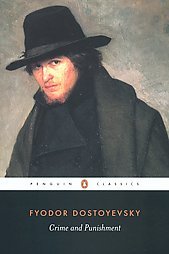You always had to be on your guard. It didn't matter how often you passed, it could always be taken away. Always. She'd never be little, she'd never be a fish. It could always be taken away.
I know a family who recently went on a trip to China, and as they were walking around Tiananmen Square, local families kept stopping them and motioning for their ten-year-old daughter to pose for pictures with their own children. My friends were amused by this at first, but as it happened over and over, and as their daughter tired of being petted and arranged just so by strangers, they grew impatient and started waving off requests. A locally-based American who had been watching said to them that it was the blue eyes more than anything – most of these people would have never seen blue eyes in real life before and they found the girl's looks to be shockingly strange; that “uncanny valley” effect that can surprise any of us when a person's looks don't fit into our known range of “normal”. Obviously, any Beijing residents who had spent time with blue-eyed people wouldn't have found this girl's looks shocking – familiarity is how we expand our known range of “normal” after all – and all of this is to say: Growing up, I don't remember seeing any trans people in real life, and what there were in pop culture (Klinger in M*A*S*H* [and, yes, I understand his character was pretending to be a transvestite, but he claimed to believe himself a woman in order to get discharged, so] or Divine in Hairspray [and, yes, I understand her to have been an intentionally over-the-top drag queen]) played up the uncanny valley effect – no one was trying to pass; these were men in dresses – and that did little to increase my own range. Today we see trans people more and more – even if they are usually the glamorous types like Lorraine Cox or Caitlin Jenner – and this familiarity absolutely expands the range of what “normal” looks like; which can't help but foster acceptance. But that's all just surface – what Casey Plett gives us in Little Fish is the interior life of a trans woman and this feels like the necessary next step in understanding; and this is why I read – in order to discover how it is that other people live and think and feel. I will admit that at first I wasn't terribly impressed with Plett's actual writing (it's a bit disjointed and doesn't flow quite right), but that's just the sentences (and just my own tastes) – in the end, Plett paints a real and empathetic picture of a transgendered woman's experience, and its value as a whole transcends the inelegance of its parts.
As the book opens, we meet Wendy Reimer – a 30-year-old trans woman, eight years post-transition, living in Winnipeg – and as the blurb reveals, she learns at her Oma's funeral that there may have been closeted trans (or at least gay) relatives somewhere in her deeply religious Mennonite family tree. The blurb makes it sound like this is the big story arc but it's really not – while there are some nice stretches examining what it has meant to come out of the closet as a member of a religious community over time, this story is more about Wendy's own life than a trek through the past. And her own life is pretty hard, mostly due to the intolerance of others: a low-paying and insecure retail job, constantly at risk of verbal abuse and sexual assault from strangers, a tough dating scene and questionable housing; it all leads to Wendy being a quick-tempered and foul-mouthed blackout drunk (you'll like her anyways). With no mother and a loving but flaky father, Wendy has cobbled together a family of fellow trans women – knowing how lucky she is to live in a time and place where she can find such a community – and the love and support these women give each other is the spiritual heart of the book. The trans women are in various stages of pre- and post-op, and they run the gamut from straight to gay to pansexual; it all paints a big and varied picture of the trans experience, with the women mostly heartbroken over those girls who don't yet know they're girls, or who are too afraid to do something about what they know and want. As for the actual surgery, Wendy says:
If other girls asked (as more and more would as more girls came out and the Klinic pipeline got long) she would say the one true thing she could: No she wasn't any happier, no she didn't feel any more like a real girl. But she was calmer now, like a small buzzing part of her brain had been turned off, and was now forever at rest.It's hard to say that any of these characters are actually happy – there's the alcohol abuse, constant misgendering (Lady, you're a dooood), sex work, and risk of suicide – but at least they're bravely living their truth, right? I found it interesting when Plett has an elderly Mennonite put in her two cents, pointing out that it's actually harder to deny yourself what you want for the glory of God:
You may have thought you needed to be a woman or die. Have you any idea what you can manage? You think you're weak. And because you think you're weak, you can't actually do anything. So you choose the easy, selfish path.Nothing about Little Fish makes it look like Wendy took the easy path (and as for “selfish”, that's just a harsh word for taking care of oneself), but Plett is generous to the religious viewpoint and it adds another dimension to Wendy's experience. I liked the Winnipeg setting, I liked the constant sense of danger (it seemed that I more concerned for Wendy's welfare than she was herself), and I liked the shoutouts to Miriam Toews and Heather O'Neill. On the other hand, even if it adds to the truth of the experience, I don't need this much explicit sex in a novel, and as I said earlier, this writing doesn't feel terribly literary at the sentence level. But overall, Little Fish feels important – the needed next step in recognising transgendered people as simply people; I consider the four stars a rounding up in light of this.










